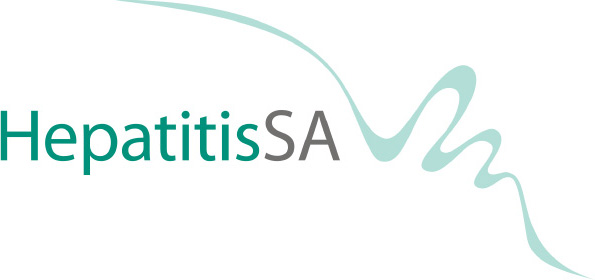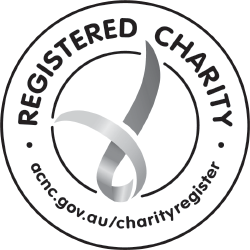There are highly effective cures for hepatitis C with an over 95% success rate, and little or no side effects. Re-treatment options can bring success rates close to 100%. These drugs, known as direct acting antivirals, are available on the Pharmaceutical Benefits Scheme (PBS).
Hepatitis C treatment regimens depend on genotype and other individual factors such as disease severity, co-morbidities, and previous treatment experience. They are taken as tablets, mostly once a day, in various combinations with each other with or without ribavirin. Interferon is no longer recommended first-line treatment.
The following information about hepatitis C treatment is not meant to replace your doctor's advice. Your specialist will advise you on the best treatment option for you and provide details about the regimen prescribed for you.
Preparing for treatment
Your GP, specialist or viral hepatitis nurse will ensure that all the necessary tests are done before you begin. The tests may include:
- Fibroscan - a non-invasive scan to assess the extent of fibrosis, if any, in your liver.
- Viral load test to determine the amount of virus in your blood.
- HBV test to determine whether you have been exposed to the hepatitis B virus. People who have been exposed to HBV require additional monitoring during hepatitis C treatment.
If you have more advanced liver disease, your nurse will also help you prepare physically and mentally to cope with side effects and put in place social supports during treatment.
Who can prescribe the new treatments?
Your specialist, GP or Nurse Practitioner can prescribe the new treatments. If your GP or Nurse Practitioner prefer, they may do it in consultation with a specialist experienced in the treatment of chronic hepatitis C. More information.
Who can dispense the new drugs?
The new medicines can be dispensed by hospital or community pharmacies depending on who wrote the script. Hepatitis SA has compiled a guide to South Australian pharmacies which dispense the new drugs.
Treatment
Of the five main DAAs being offered in Australia, three can treat all genotypes in as little as 8 to12 weeks. These three pangenotypic drugs are:
- Epclusa (sofosbuvir + velpatasvir),
- Maviret (glecaprevir + pibrentasvir) and
- Vosevi (sofosbuvir + velpatasvir + voxilaprevir).
Vosevi, the latest drug to be listed on the PBS, can cure those for whom treatment with the other DAAs had not worked.
Some people may have ribavirin added to their treatment.
The treatment recommended for you will depend on your individual circumstances such as whether you have undertaken treatment before, the condition of your liver and other health conditions you may have.
Direct acting antivirals are generally well tolerated with few recognised side effects. Possible side effects vary from drug to drug but may include fatigue, nausea, headache, diarrhoea, itching, insomnia, weakness, tiredness, anaemia and feeling as though you have a cold. Speak to your doctor or nurse about which side effects may occur with your prescribed treatment.
Side effects associated with ribavirin include anaemia, rashes, nausea and birth defects. Contraception is a must for BOTH men and women during, and for six months after, treatment.
Adherence
For the best chance of a cure, it is vital that you take all medicines as directed by your doctor. For tips on sticking to your schedule see Hepatitis SA Community News #73.
Mixing medicines
If you are taking other medicines including over the counter drugs or herbal remedies, please check with your specialist as there may be harmful interactions which may affect your chance of a cure.
There are recognised drug interactions between these DAAs and some HIV medicines, anti-mycobacterials, St John’s Wort and some other common medicines.
Monitoring treatment
Most people will not need to have regular monitoring during treatment and will only have a PCR test 12 weeks after treatment finishes.
If the amount of virus in your blood drops to an undetectable level and remains undetectable for 12 weeks after you complete treatment, it is known as a Sustained Virological Response (SVR). This effectively means you are cured.
What if treatment doesn't work?
Vosevi (sofosbuvir + velpatasvir + voxilaprevir) is listed on the PBS and can cure those for whom treatment with the other DAAs had not worked.
There is on-going research into new drugs and combinations so even if available treatments didn't work for you, stay in touch with your liver nurses or doctors.
It is important to maintain regular liver health checks and keep up to date on when new and more suitable treatments may be available.
For information about clinical trials, talk to your doctor or viral hepatitis nurse. Information on clinical trials in Australia can also be found on the Australian Clinical Trials. Read more about it here.
Support and information
Hepatitis SA can answer many of your questions and talk to you about any concerns you have. We can also put you in touch with other people who have been on treatment who can share their experiences. Having a supportive network of friends, family and services could be helpful if you decide to start treatment. Click here for videos and more information.
How do I get started?
The best way to get started on hepatitis C treatment is to contact the viral hepatitis nurses:
Central Adelaide
Jeff - 0423 782 415
Debbie - 0401 717 953
Amanda - 0466 851 759
Northern Adelaide
Bin - 0401 717 971
Southern Adelaide
Rosalie - 0466 777 876
Lucy - 0466 777 873
Contact us
Helpline: 1800 437 222
Email: This email address is being protected from spambots. You need JavaScript enabled to view it.
Ctrl+P to print this page
More details on new hepatitis C medicines
Factsheets, FAQs & videos on new hepatitis C medicines.











